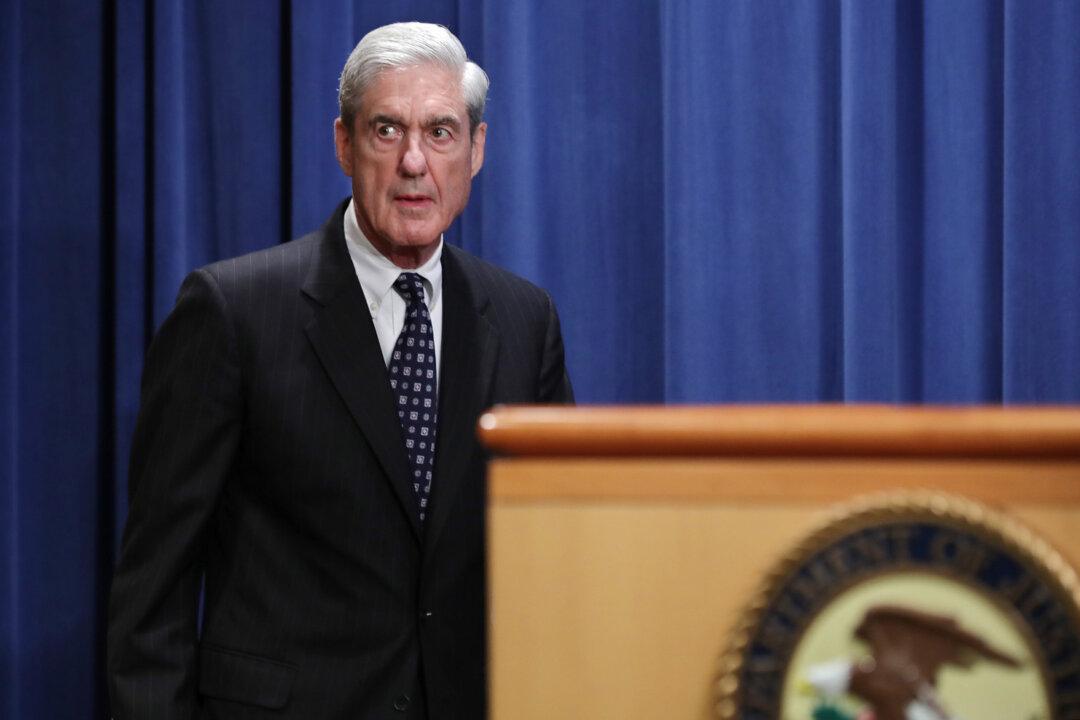A transcript in special counsel Robert Mueller’s Russia report was selectively edited to artificially buttress the narrative that President Donald Trump was obstructing the special counsel investigation.
The Mueller report quotes a transcript of a Nov. 22, 2017, voicemail message from the president’s attorney, John Dowd, to the attorney for former national security adviser Michael Flynn.





